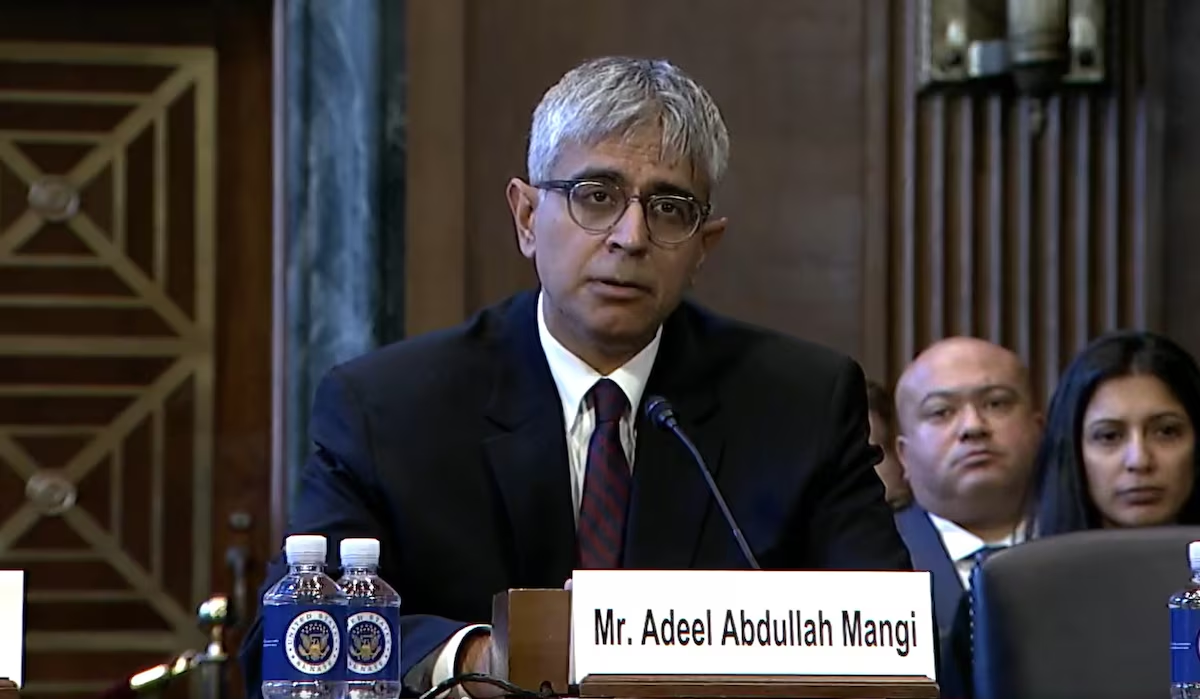Mangi Criticizes “Smear Campaign” After His Nomination Collapses
On Monday, Adeel Mangi sharply criticized the “organized smear campaign” that ended his chance to become the nation’s first Muslim federal appeals court judge. In a letter to President Joe Biden, Mangi called the judicial appointment process “fundamentally broken” and expressed disappointment over the outcome. Despite Biden’s support, Mangi conceded that his nomination faced insurmountable obstacles after Senate Democrats and Republicans struck a post-election deal on judicial nominees.
Senate Deal Blocks Mangi’s Confirmation
Senate leaders struck a deal to advance judicial appointments, but it left Mangi’s nomination among the casualties. Democrats agreed to sideline four appellate court nominees, including Mangi, to secure votes on a dozen district court nominees. Senate Majority Leader Chuck Schumer’s office confirmed that none of the four nominees had enough support to pass.
In Mangi’s case, three Senate Democrats had already pledged to vote against his confirmation alongside Republicans. This failure allows President-elect Donald Trump to fill the vacant seat on the Philadelphia-based 3rd U.S. Circuit Court of Appeals. Trump’s appointment could tilt the court further to the right, which currently holds seven Republican-appointed judges, six Democratic appointees, and one vacancy.
Mangi, a New Jersey-based partner at the law firm Patterson Belknap Webb & Tyler, acknowledged this shift and criticized the nomination process for its flaws.
Mangi Condemns Islamophobic Attacks and Politicized Hearings
Mangi described how the confirmation process subjected him to unfounded attacks and Islamophobic rhetoric. He said Senate Republicans unleashed “performative outrage” and pushed “spurious online assaults” focused on his identity as a Muslim. Mangi had expected questions about his qualifications and legal views but instead faced politically charged inquiries.
During a Senate Judiciary Committee hearing in December 2023, Republicans questioned Mangi’s stance on the Israel-Hamas war and the September 11, 2001 attacks. They also scrutinized his past role on an advisory board for Rutgers Law School’s Center for Security, Race, and Rights. Critics targeted the center’s events and its director’s support for Palestinians. Mangi condemned these insinuations and called them false, saying, “The underlying premise appeared to be that because I am Muslim, surely I support terrorism and celebrate 9-11.”
Mangi Calls for Reform in the Nomination Process
Mangi did not hold back in his letter. He argued that the judicial nomination process has devolved into a “channel for the raising of money based on performative McCarthyism” and a stage for “dark-money-funded attacks” that disproportionately target minority nominees.
He questioned the incentives for qualified individuals to pursue public service. “Who will give up the rewards of private sector success for public service, if the added price is character assassination and wading through a Senatorial swamp like this one?” Mangi asked.
As Mangi’s nomination collapses, it marks not just a personal setback but a broader critique of a system he says discourages diversity and integrity.

